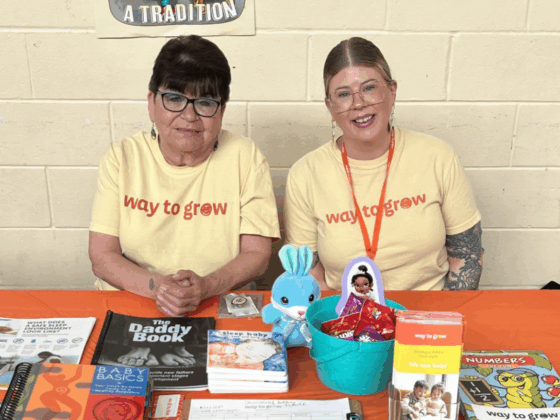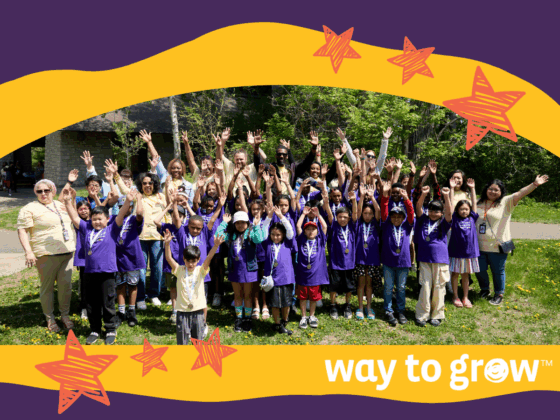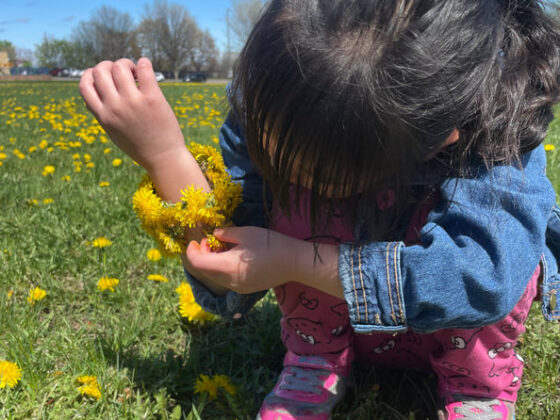At its core, early literacy development begins with what children know about reading and writing long before they themselves can read and write. Here are a few tips to help promote early literacy development at home:
1. Enjoy more conversation
Make the most of the time you spend with your child by simply talking and listening to them more. Listen to children’s songs in the car or use this valuable time together to talk about anything from the alphabet to the weather.
2. Avoid baby talk
Stick to more grown up language to build a long lasting foundation for literacy development. Many activities can promote rich language use, such as visiting a museum, zoo or other exhibit. You’ll find yourself using words to describe your surroundings in these settings that you may not often use in routine conversation.
3. Bring back the bedtime story
Researchers estimate that less than half of children under the age of five are read to daily. Reading with your child from birth is one of the best ways to promote early literacy development. Just a few minutes a day makes a big difference, so take a trip to the library and make sure you aren’t forgetting those bedtime stories!
4. Expand on school projects
If you don’t know what your child is working on in school, ask their teacher to share their unit plans. Once you know what your child is learning, build on those lessons at home to help deepen their knowledge and draw more connections to them. Have fun with this! If, for instance, your child is learning the letter “B” this week, take them to the beach (weather permitting), or create a collage using magazine and newspaper clippings of items or activities that start with the letter “B”. If your child is a little older, and perhaps learning about the environment, check out a really cool book about the rainforest, and talk about the differences between that environment and the one in which they live.
5. Encourage them and express pride
Nothing fosters a love for learning faster than the encouragement of a proud parent. Whether your child just learned their ABCs or finished their first chapter book, be sure to tell them what a great job they have done. Recognizing their hard work paying off will set healthy patterns for the future.




